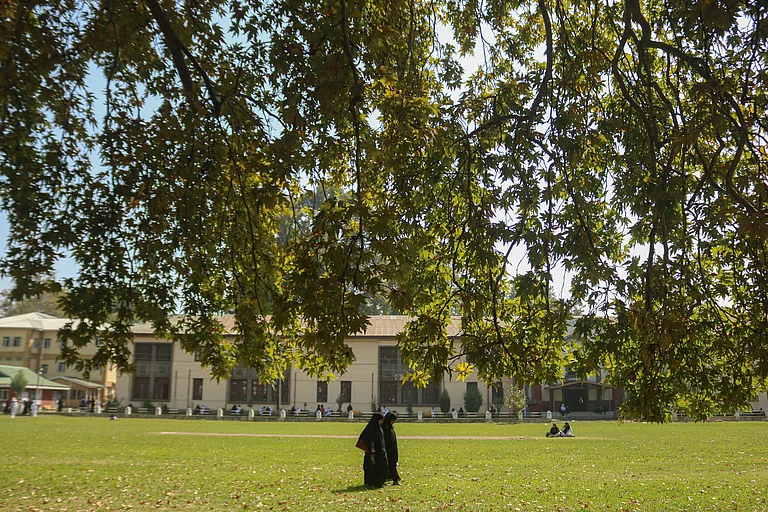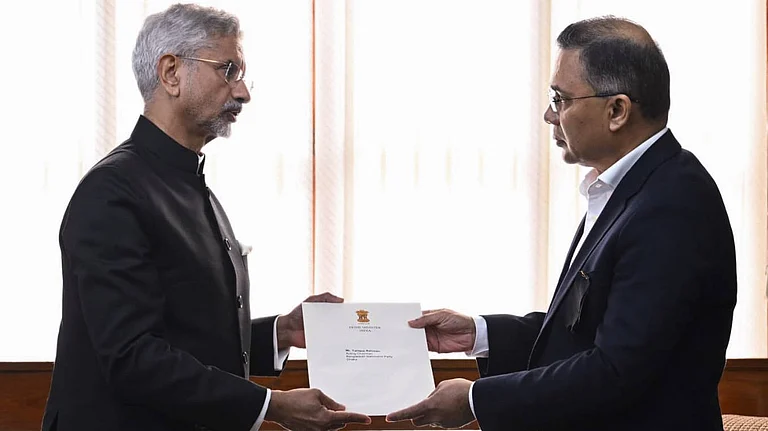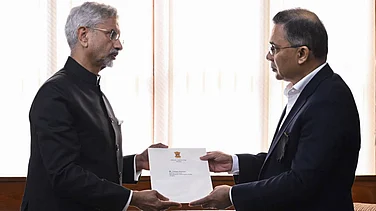US President Joe Biden has called Pakistan "one of the most dangerous nations in the world" because of its nuclear weapons.
Biden's comments is the latest in the long line of expression of concerns by the United States and the West over Pakistan's nuclear weapons.
Ever since Pakistan went public with its nuclear weapons in 1998, the United States has been concerned about the safety of its nuclear weapons as the country is home to several Islamist and jihadist groups which are deeply associated with the state. Concerns have therefore been raised over these extremist and terrorist groups getting their hands on the country's nuclear weapons.
Biden said, "And what I think is maybe one of the most dangerous nations in the world: Pakistan. Nuclear weapons without any cohesion."
Biden was speaking at the reception of the Democratic Party in the context of the changing geopolitical situation globally.
"Ever since May 1998, when Pakistan first began testing nuclear weapons, claiming its national security demanded it, American presidents have been haunted by the fear that Pakistan’s stockpile of nukes would fall into the wrong hands. That fear now includes the possibility that jihadis in Pakistan, freshly inspired by the Taliban victory in Afghanistan, might try to seize power at home," noted Marvin Kalb, a Non-Resident Senior Fellow at the Brookings Institute last year.
The top US general Mark Milley had warned that a rapid withdrawal of forces from Afghanistan would pose an increased risk to the security of Pakistan's nuclear arsenal.
In his speech, Biden said the world was changing rapidly and countries were rethinking their alliances. He said, "And the truth of the matter is —I genuinely believe this— that the world is looking to us. Not a joke. Even our enemies are looking to us to figure out how we figure this out, what we do."
There was a lot at stake, Biden said, emphasising that the US had the capacity to lead the world to a place it had never been before.
He said, "Did any of you ever think you’d have a Russian leader, since the Cuban Missile Crisis, threatening the use of tactical nuclear weapons that would — could only kill three, four thousand people and be limited to make a point?"
In a televised speech in September, Russian President Vladimir Putin said he would "certainly use all the means at our disposal to protect Russia and our people." He added that he was not bluffing. This has been understood to be a reference to nuclear weapons. Putin's rhetoric has raised fears that Ukraine War might turn nuclear as Putin might eventually deploy nuclear weapons. Though there are no signs yet that Putin has made any such decision.
Biden said, "Did anybody think we'd be in a situation where China is trying to figure out its role relative to Russia and relative to India and relative to Pakistan?"
Talking about his Chinese counterpart Xi Jinping, Biden termed him as a man who knew what he wanted but had an "enormous" array of problems.
Earlier this month, the United States urged its citizens to reconsider travel to Pakistan, especially its restive provinces, due to terrorism and sectarian violence.
Earlier this week, it emerged that Pakistan, once a key US ally, was not even mentioned in the US National Security Strategy 2022, which identified China as "America’s most consequential geopolitical challenge". The 48-page document does mention terrorism and other geo-strategic threats in the South and Central Asia, but, unlike in the recent past, it does not name Pakistan as an ally needed to tackle those threats. Pakistan was also absent from the 2021 strategy paper.
A formerly warm relationship between the United States and Pakistan frayed due to Pakistan's support for the Taliban in Afghanistan and the presence of large numbers of jihadists on its soil. Americans have been particularly upset with Pakistan since 2011, after Al Qaeda founder Osama bin Laden was found and killed there.
After a hiatus of a few years, Pakistan and the United States have started to re-engage. Over the past few weeks, Pakistani Foreign Minister Bilawal Bhutto Zardari met US Secretary of State Antony Blinken and Chief of Army Staff General Qamar Javed Bajwa met with Secretary of Defense Lloyd Austin.
The United States also recently approved the sale of equipment and other elements worth $450 million to Pakistan for the upkeep of its fleet of F-16 fighter jets. Though the deal is dubbed as a "sustainment" package, experts have highlighted that it envolves elements that would sharpen Pakistan's fighter fleet's teeth.
"What the US calls "sustainment" is really American modernization of Pakistan's entire F16 fleet. Upgrading that country's 85 F16s with the latest avionics, including radars, will make them more combat-worthy and deadly against India," said strategic affairs commentator Brahma Chellaney on Facebook.
In light of such a warming relationship, commentators have also wondered why Biden has now made such a statement. Somnath Mukherjee said on Twitter, "Wonder why President of the United States helpfully extended a grant to sustain Pakistan's primary nuclear weapons vector, the F-16?"
Yusuf Unjhawala, Editor of India Defence Forum, reminded Biden that, while he is making such a comment at the moment, he just strengthened Pakistan's fleet that serves as the delivery platform for its nuclear weapons.
(With PTI inputs)


























